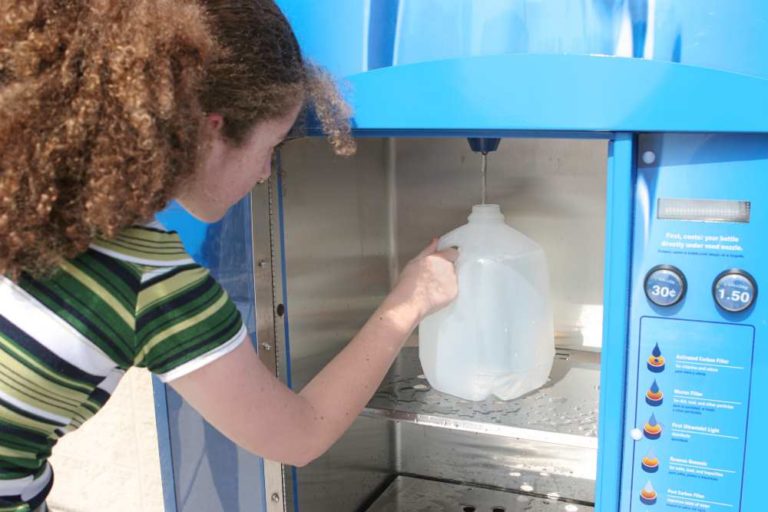
Water for society – Including all
World Water Week, the leading annual event on global water issues, was held in Stockholm from August 25-30, 2019. https://www.worldwaterweek.org World

Share with Friends

We all want to drink the cleanest possible water so many of us turn to water filtration systems to do the job. Reverse Osmosis (RO) systems are well known to excel at removing unhealthy contaminants from tap water. A good RO system can remove contaminants such as arsenic, nitrates, sodium, copper and lead, some organic chemicals and fluoride. But in our great enthusiasm to clear out impurities from our tap water, are we also removing the beneficial minerals from the water in the same process?
According to a study by the World Health Organization (WHO) the answer is yes! RO removes 92-99 per cent of beneficial calcium and magnesium from the water leaving the water demineralized. Removing these vital minerals from the water has been identified as a health risk by the WHO study which cites increased risks in conditions such as gastrointestinal problems, bone density issues, joint conditions and cardiovascular disease.
And not only is demineralized water possibly a health risk, it also leaves the water tasteless and flat rendering it unappealing to the palate. If it doesn’t taste good it’s very likely that you will not be motivated to drink enough water to keep properly hydrated. That can compound other health problems. Dehydration slows your metabolism down as well as the natural healing process of the body. Chronic dehydration can lead to fatigue, constipation, high blood pressure, digestive disorders, respiratory issues, weight gain, skin disorders, joint pain and premature aging.
But it gets even worse. Because RO water doesn’t have enough minerals, when it is consumed it actually leaches minerals from the body.
One of the primary reasons that RO water is unhealthy is that by removing the minerals the water becomes acidic (often well below 7.0pH) which does not help maintain a healthy pH balance in the blood, which should be slightly alkaline. Acidosis has been identified as being a major cause of most degenerative diseases.
While reverse osmosis is effective for removing a variety of contaminants, most systems do not remove volatile organic chemicals, chlorine and chloramines, pharmaceuticals and a host of other synthetic chemicals found in municipal water.
If you currently have an RO system and are not yet ready to give it up try getting a remineralisation cartridge or add on to your system.
There are a number of excellent water filtration systems that remove harmful contaminants from the water without demineralizing it. For more information: www.waterionizer.org
WHO Study: Health risks from drinking demineralised water: http://www.who.int/water_sanitation_health/dwq/nutrientschap12.pdf?ua=1
Share with Friends

Julia Abelsohn is a writer, editor and clinical aromatherapist. She has been sharing her expertise and passion for health and wellness for over 25 years. When not at her desk she can be found exploring the many trails and green spaces near her home in Edmonton, Alberta.
Featured
Drink healthy, hydrogen-enriched water on the go with the AOK 808
The only USA-made water ionizer filter that has certified independent test results for reducing 172 contaminants by 99.9%.
World’s most advanced natural filter, alkalizer, ionizer and hydrogen system all in one affordable package.
Follow Us
Latest Posts

World Water Week, the leading annual event on global water issues, was held in Stockholm from August 25-30, 2019. https://www.worldwaterweek.org World

It’s Saturday morning, the sun is shining and it’s a perfect day to go out for a paddle. You grab

Since time immemorial scientists, philosophers and even us mere mortals have asked the question: are we alone in the universe?
Popular Posts

Water vending machines are as common in grocery stores as ATM machines but what kind of water are they really
For over 20 years, thousands of customers worldwide rely on Best Water for our excellent one-to-one support, high quality water ionizer products and competitive pricing. If you have any questions at all please call us. Our experienced techs are ready to help! Learn more about us.
© 2019 Best Water Inc. All Rights Reserved. Website & Branding by Elite Web Design